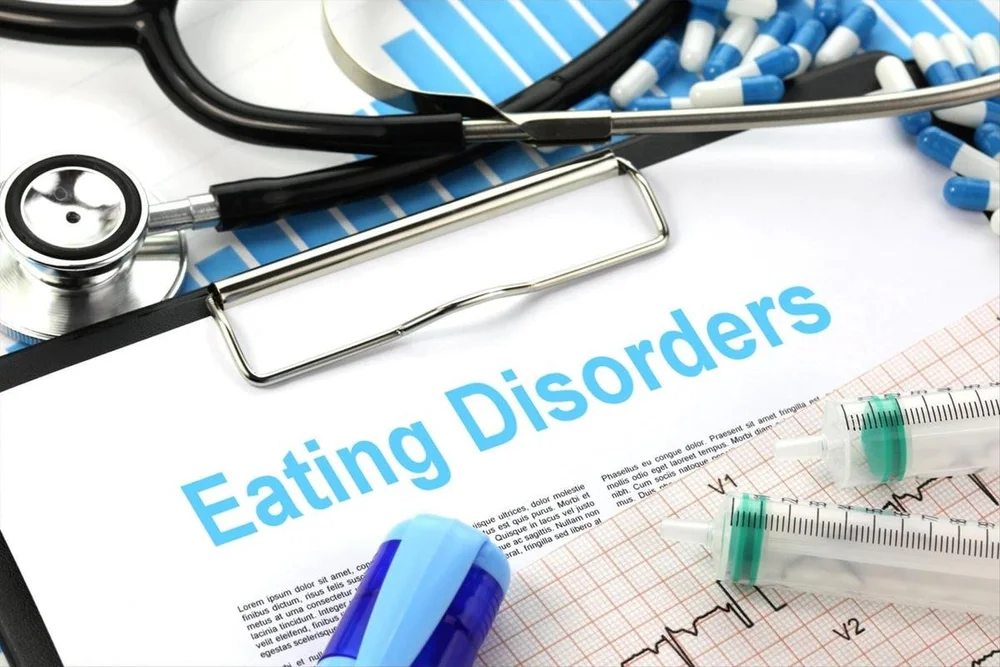Eating disorders affect millions of people in the United States, disrupting their relationship with food and their bodies. These complex mental health conditions require a comprehensive understanding and professional treatment. Here is more information on these disorders, their types, causes, symptoms, and recovery options:
What Is an Eating Disorder?
An eating disorder is a serious mental health condition characterized by persistent disturbances in eating behaviors and related thoughts and emotions. These disorders have a significant impact on physical health, psychological well-being, and social functioning. Eating disorders involve complex interactions between biological, psychological, and social factors.
The condition affects people of various ages, genders, and backgrounds. Medical professionals classify these disorders as psychiatric conditions that require specialized treatment approaches. Unlike simple dietary preferences or temporary changes in eating habits, eating disorders involve persistent patterns that interfere with daily life and overall health.
What Are the Different Types?
Several distinct types of disorders exist, each with specific diagnostic criteria and characteristics. Anorexia nervosa involves restriction of food intake, leading to low body weight, intense fear of gaining weight, and distorted body image perception. Individuals with this condition may view themselves as overweight despite being underweight.
Bulimia nervosa features recurrent episodes of binge eating followed by compensatory behaviors such as vomiting or excessive exercise. People with bulimia typically maintain normal or slightly above-normal weight, making the condition less visible than anorexia. Binge eating involves frequent episodes of eating large amounts of food within short periods, accompanied by feelings of loss of control, but without compensatory behaviors.
What Causes Them?
Eating disorders develop through complex interactions of multiple risk factors. Genetic factors play a significant role, with a family history of eating disorders or other mental health conditions increasing risk. Brain chemistry differences, particularly those involving the neurotransmitters serotonin and dopamine, contribute to the development and maintenance of these conditions. Psychological factors include perfectionism, low self-esteem, anxiety, depression, and trauma history.
What Are the Symptoms?
Symptoms manifest across physical, behavioral, and emotional domains. Physical symptoms may include significant weight changes, fatigue, dizziness, hair loss, brittle nails, and gastrointestinal problems. Behavioral symptoms include secretive eating behaviors, avoiding social meals, excessive exercise, frequent bathroom visits after meals, and rigid food rules or rituals. Emotional symptoms encompass anxiety around food and eating situations, depression, irritability, and obsessive thoughts about food and body image.
What Does Recovery Involve?
Recovery requires comprehensive, multidisciplinary treatment approaches tailored to individual needs. Medication management can address co-occurring mental health conditions such as depression and anxiety that often accompany these disorders. Spravato® esketamine nasal spray is a treatment option for treatment-resistant depression that may co-occur with eating disorders.
Cognitive behavioral therapy (CBT) serves as a primary treatment approach, helping individuals identify and change distorted thought patterns and behaviors related to food and body image. CBT techniques focus on developing healthier coping strategies and challenging negative beliefs about food, weight, and self-worth. Nutrition counseling provides education about balanced eating patterns and helps restore healthy relationships with food.
Mindfulness-based therapy incorporates techniques that help individuals develop awareness of present-moment experiences without judgment. These approaches can reduce anxiety around eating, improve body awareness, and enhance emotional regulation skills. Pharmacogenomics testing examines how individual genetic variations influence the metabolism and response to medication.
Start Your Journey Today
Recovery from mental health disorders is possible with appropriate treatment and support. If you recognize symptoms in yourself or a loved one, seek professional evaluation and treatment. Mental health professionals specializing in this area can provide an accurate diagnosis and develop personalized treatment plans that address your specific needs and circumstances.









